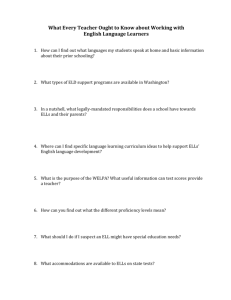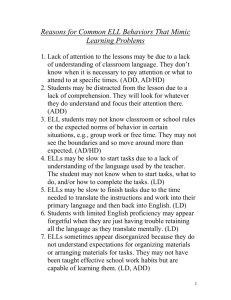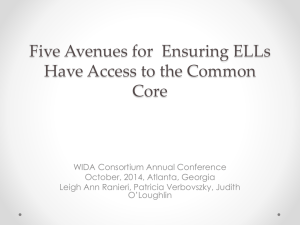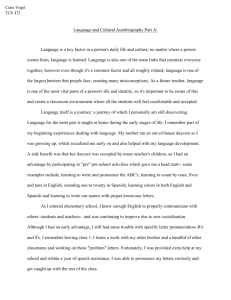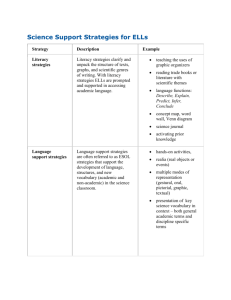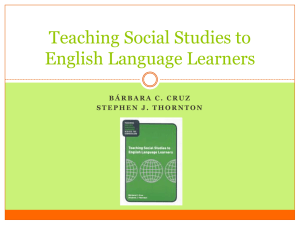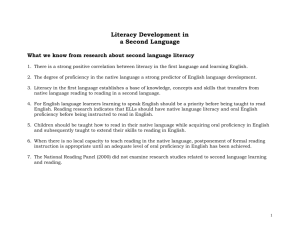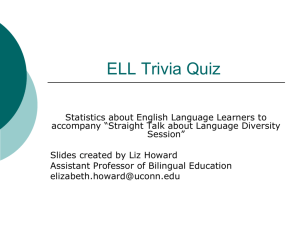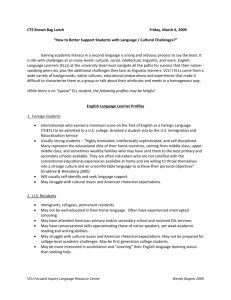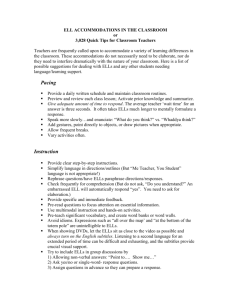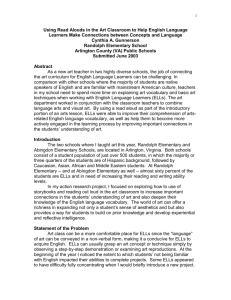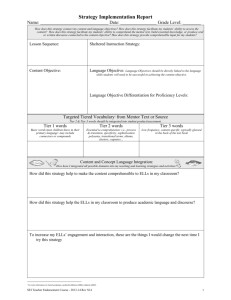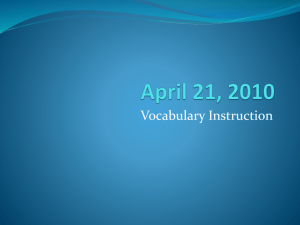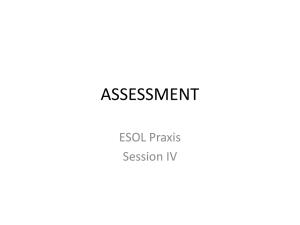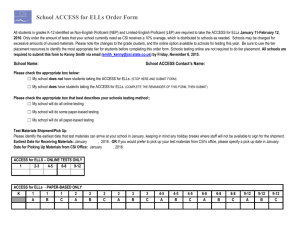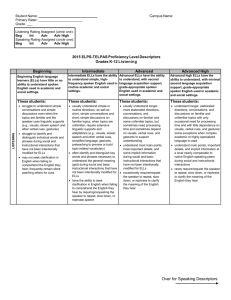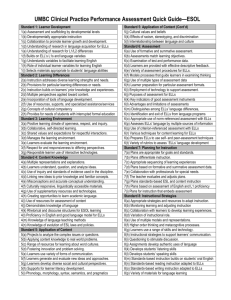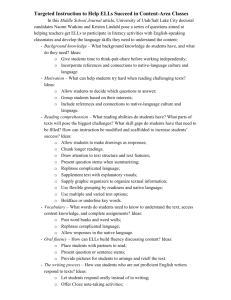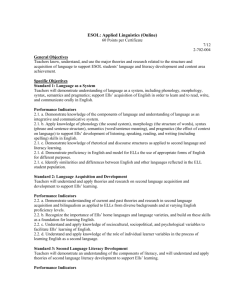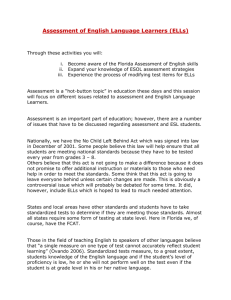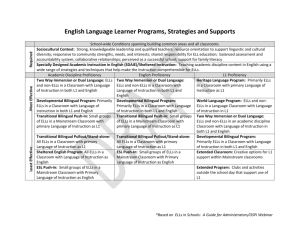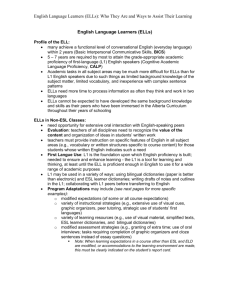Written Article Summary 4
advertisement
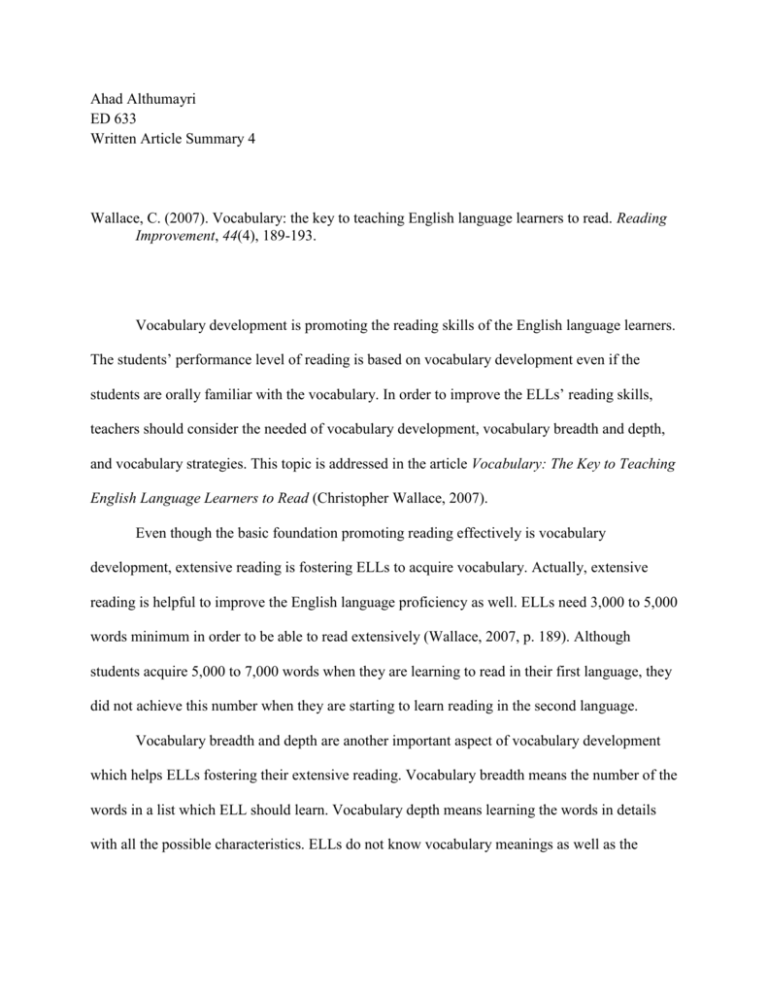
Ahad Althumayri ED 633 Written Article Summary 4 Wallace, C. (2007). Vocabulary: the key to teaching English language learners to read. Reading Improvement, 44(4), 189-193. Vocabulary development is promoting the reading skills of the English language learners. The students’ performance level of reading is based on vocabulary development even if the students are orally familiar with the vocabulary. In order to improve the ELLs’ reading skills, teachers should consider the needed of vocabulary development, vocabulary breadth and depth, and vocabulary strategies. This topic is addressed in the article Vocabulary: The Key to Teaching English Language Learners to Read (Christopher Wallace, 2007). Even though the basic foundation promoting reading effectively is vocabulary development, extensive reading is fostering ELLs to acquire vocabulary. Actually, extensive reading is helpful to improve the English language proficiency as well. ELLs need 3,000 to 5,000 words minimum in order to be able to read extensively (Wallace, 2007, p. 189). Although students acquire 5,000 to 7,000 words when they are learning to read in their first language, they did not achieve this number when they are starting to learn reading in the second language. Vocabulary breadth and depth are another important aspect of vocabulary development which helps ELLs fostering their extensive reading. Vocabulary breadth means the number of the words in a list which ELL should learn. Vocabulary depth means learning the words in details with all the possible characteristics. ELLs do not know vocabulary meanings as well as the “English Only peers”, so the vocabulary depth and breadth positively affect their reading performance. Teachers should know the best strategies which provide the best instruction to improve the vocabulary of ELLs. The first powerful strategy is cognate knowledge which is benefiting students whose first language share with English cognate and orally proficient students. Another important strategy is that ELLs should learn as much as they could of words that “English Only peers” know in order to improve their comprehension skills. Also, it is important to reinforce the ELLs’ second language by read-aloud activities or teacher-directed language development activities. In order to foster the ELLs’ reading skills, teachers should focus in vocabulary development. Focusing on the vocabulary development will improve both spoken and written language as well. Teachers should focus on all the aspects that could help them to promote their second language. The need for vocabulary development, vocabulary breadth and depth, and vocabulary strategies are all important for teachers to consider achieving the best result.
